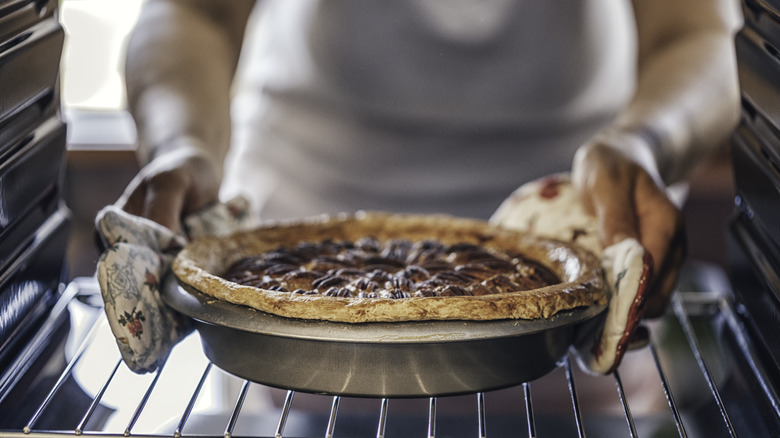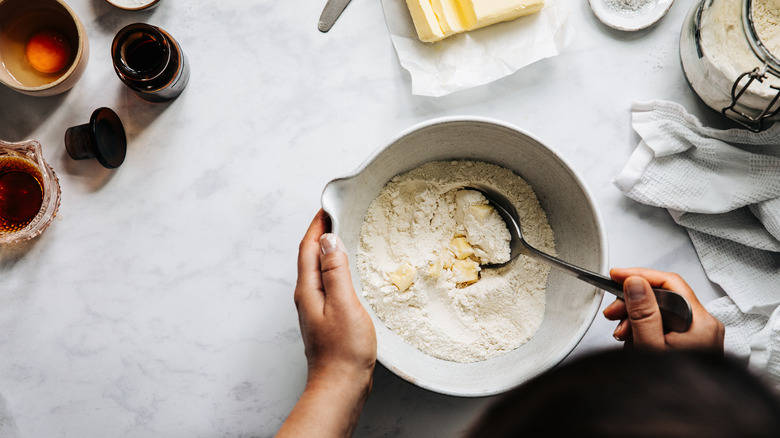It's Time To Start Adding Whiskey To Your Homemade Pie Crust
Professional bakers often have alcohol tucked away in their kitchens, and it's not for the reason you might think. Adding alcohol to your dough — booze that contains at least 40% ABV — can reduce the chances for gluten to form in the dough, resulting in flakier crusts and pastries. This is a trick you can use at home, as adding alcohol to the dough you're beginning to knead can help you take a flaky, golden pie crust out of your oven with pride.
If you're worried that splashing whiskey or rum into your dough will leave behind a boozy taste to the crust you intend to fill with blueberry filling, fear not. The alcohol cooks out in the oven, leaving behind only subtle remnants of tasting notes of the alcohol you've included in your pie dough. Whatever you don't incorporate into the dough for your baked goods can be used to make yourself a cocktail while you wait for the oven timer to go off.
A boozy hack for better bakes
The best crusts call for the right mix of flour, liquid, and fat to produce a dough that results in flaky, textured layers that can hold your choice of sweet or savor pie fillings. Reaching for alcohol instead of water or milk as you put together your recipe can put the odds of baking perfection on your side, not only making the pie dough easier to roll and shape but limiting the chances of crust-toughening gluten forming during the baking process.
If your whiskey bottle is empty, vodka, rum, or apple brandy will also do. Add the liquid gradually, as you may find your dough a bit stickier to work with than usual (you can chill the dough to make it easier to manipulate). After pulling your alcohol-enhanced crust out of the oven, you'll be pleased with the flaky, tender result — and may want to toast the success of your culinary creation.

